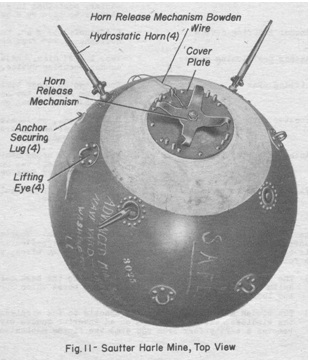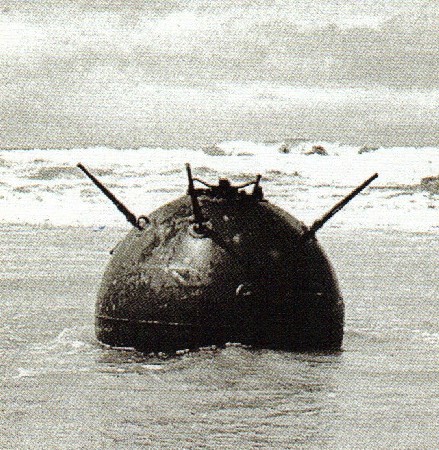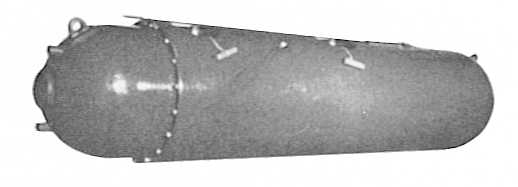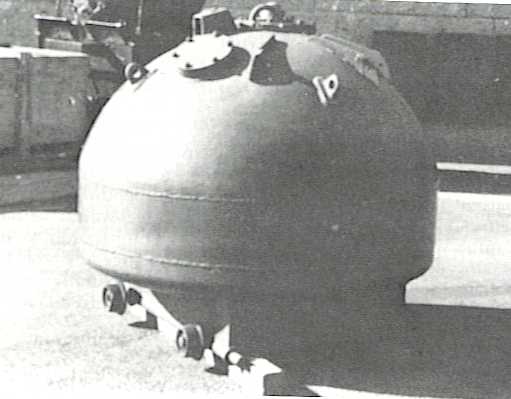| H1
Pendulum-fired with a 0.90 m (35 in) spherical shell. Total weight of 520 kg (1,146 lbs.), charge 80 kg (176 lbs.) of gun cotton. Entered service during World War I. |
| H2
Details unknown. |
| H3
Five switch horn type with a 0.75 m (34 in) spherical shell. Entered service in 1922. Total weight of 670 kg (1,477 lbs.), charge 110 kg (243 lbs.) of Mélinite. |
| H4 and H4AR
Coast defense mine with five switch horns (four on H4AR) on a 1.04 m (41 in) spherical shell. H4 entered service in 1924, H4AR in 1930. Total weight 1,135 kg (2,502 lbs.), charge 220 kg (485 lbs.) of TNT. |

H5AR Mine
|

H5AR mine washed up on a North Sea shore
|
| H5 and H5AR
Five switch horn (four on H5AR) type with a 1.04 m (41 in) spherical shell. H5 entered service in 1928, H4AR in 1930. Total weight 1,160 kg (2,557 lbs.), charge 220 kg (485 lbs.) of TNT. Some H5 mines used antennas. |
| H5UM1 and H5UM2
Four switch horn type with a 1.04 m (41 in) spherical shell. Entered service in 1935. Total weight 1,100 kg (2,425 lbs.), charge 220 kg (485 lbs.) of TNT. Used a 500 m (1,640) mooring cable with the mine at 180 m (590 feet). |
| H5 2M
Experimental mine of 1938 intended for use at great depths. Not in service and details unknown. |
| H6
Four switch horn type with a 1.15 m (45 in) spherical shell. Total weight unknown, charge 330 kg (661 lbs.) of TNT. |
| H7
Multiple mine with one primary and four auxiliary bombs. Main mine had six switch horns while the auxiliary mines had four. This was an anti-submarine type with the main mine having a 0.83 m (31 in) spherical shell. Main mine had a weight 665 kg (1,446 lbs.), charge 100 kg (220 lbs.) of TNT. Used a 300 m (984 foot) mooring wire. |

